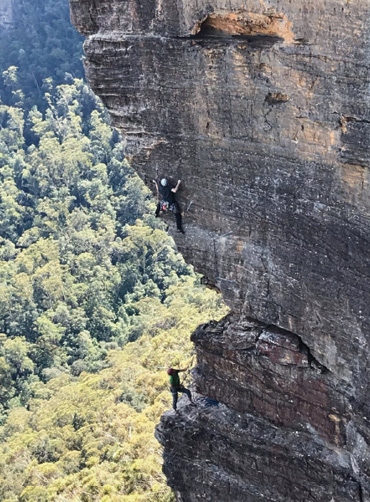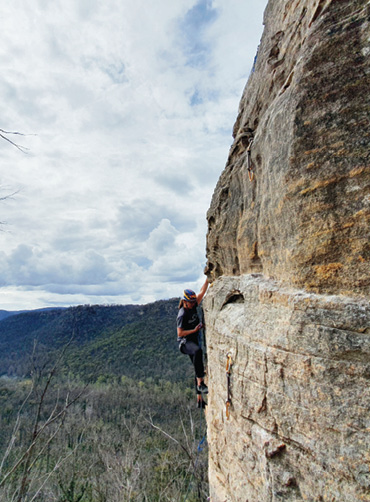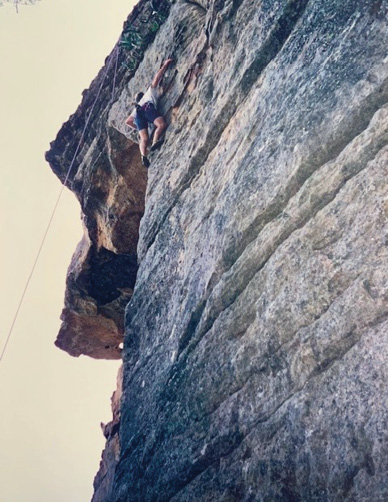Justice hanging by a (strong) thread


In all things of nature there is something of the marvellous – Aristotle
Practising at the Bar presents many challenges. From long hours preparing trials, to meeting tight and overlapping deadlines to deliver advices, meeting with clients and preparing submissions. Then there is appearing in court. The demands placed on us can take a toll on our physical and mental wellbeing and limit the time we have to spend doing things outside the Bar including spending time with family and friends.
With the limitations imposed by COVID-19, many of these challenges have been amplified as we try to adapt to new ways of juggling the intermingling of home life and work.
These challenges serve to remind us of the importance of staying mentally and physically healthy, so we can practise at our best.
Work-life balance can be extremely difficult to achieve. One way some are trying to find this balance is by getting outdoors. There are many reasons people are drawn to the outdoors. It is good for our physical and mental health, and there is a wonder to the natural landscape.
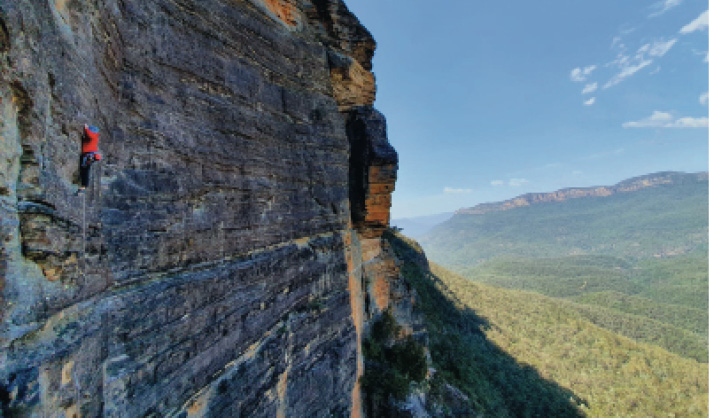
Why get outside?
When several members of the profession were asked why they get out into nature, consistent themes emerged.
Neil Williams SC said:
Life at the Bar is intense, and requires both stamina (when a case goes wrong and requires long hours over several days) and a balanced perspective on life (for the bruising times that we all encounter). Being fit is a huge help with each of those. Most outdoor activities require fitness, and therefore give you an incentive to maintain your fitness. And they remind you that there is more to life than running cases.
Jeh Coutinho, clerk at Banco Chambers, said:
Having an outside interest can be a welcome distraction from the stresses of an intense working life, particularly if that interest can take you to the outdoors. It gives you something to look forward to, and climbing provides the types of challenging exercise and connection to nature that can improve physical, mental, and emotional wellbeing. Most importantly, it’s just fun.
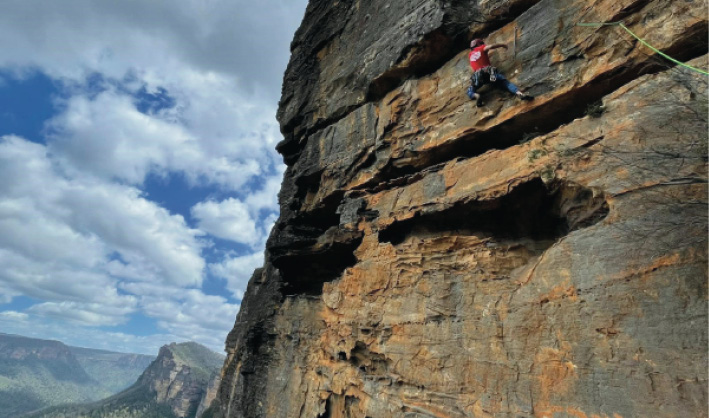
Nature rewards
It is clear that nature rewards, and this is not merely anecdotal. There is a substantial body of scientific research on what health benefits can be gained by getting into nature. Nature has a restorative effect. A few days among the trees or at the beach can help dissipate stress and anxiety, and leave you feeling genuinely healthier and happier.
Research from Harvard Medical School has discovered that people who do nature walks rather than urban ones showed lower activity in the prefrontal cortex of the brain. This region is active when a person is having repetitive thoughts focussed on negative emotions. It is overactive in people suffering from depression. Aspects of nature such as calming sounds or apparent silence, are shown to reduce blood pressure and levels of the stress hormone cortisol, thus suppressing the body’s fight-or-flight response. These results were most pronounced for older males who are at higher risk from mood disorders as they get older.
Climbing outdoors
There is a growing cadre of barristers and judges and others in the profession who are embracing the benefits of nature through climbing – Lucy McCallum (Court of Appeal), Judge Chris Hoy (District Court Judge), Neil Williams, Daniel Tynan, Belinda Baker, Jeh Coutinho and others.
Climbing is a thrilling physical and mental challenge. Summitting a sheer cliff face that looked impossible from the ground provides a great sense of achievement. It requires complete commitment of your mind and body and allows you to experience extraordinary places in nature that few get to experience.
Climbing may at times look dangerous, but it is all about assessing the risks, making decisions as to how much risk you are prepared to take and addressing how to minimise the risks. These are all skills that can be learnt with the proper training and experience. And as Neil Williams put it 'During COVID-19, climbing is much safer than catching the bus and then taking the lifts at work.'
Aside from the physical challenges, climbing involves a great degree of problem solving. When you are climbing your whole world narrows to the few metres around you and working out how to move your body to the next hold, then the next and the next. It requires absolute focus, but is also meditative. When you are 200 metres up a cliff face there is no room to think about the notice of motion or submissions you need to draft.
There are other benefits too. When asked why she climbs, McCallum JA said:
Climbing challenges your perceptions of your own capability and comfort levels. There is always a new challenge to take on and each step offers the possibility of discovering you are better, stronger or more confident than you thought you were.
The potential for personal growth through climbing is almost infinite and I have seen people discover a sense of self and confidence that they did not think was possible when they first started (myself included).
Climbing requires self-sufficiency. If you are not skilled and confident in your own abilities you may risk endangering yourself and others. You learn to develop the ability to handle and adapt to any situation that arises. For example, an unexpected storm, a stuck rope, or dropping a key piece of equipment could occur while halfway up a cliff which requires quick thinking to work out how to get everyone safely off the mountain.
Climbing also develops a strong sense of camaraderie. Although you have to be self-sufficient, you are also entirely dependent on your partner to ensure your safety. Your climbing partner literally has your life in their hands controlling the ropes if you fall. There is no option but to work together as a team and in those circumstances close bonds and friendships form.
Back at the Bar
In some ways, climbing pursuits can resemble the challenges faced in practice at the Bar – a difficult brief arrives and you wonder how you will solve the problems raised – but through skill and experience, and with the support of colleagues, problems are solved and a case is successfully run, with some thrills and excitement along the way. In other ways, climbing is nothing like work, and that is exactly what makes it so worthwhile.
Whether it is climbing or something else, as McCallum JA says, 'harvest your interests outside the Bar – family, friends and hobbies – the first two will support you, the latter will sustain you.'
The mountains are calling and I must go
– John Muir
